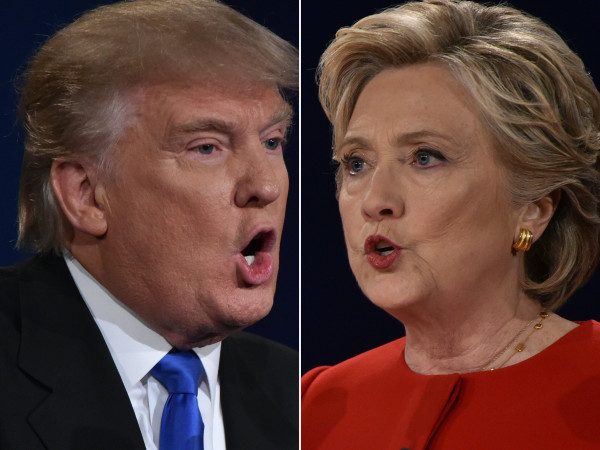

The key question on many investors’ minds after Donald Trump was named 45th President of the US is what should they sell, hold or buy.
Dan Kemp, chief investment officer for Morningstar Investment Management Europe, said there were lots of mis-pricing opportunities created by the shock victory for Republican Mr Trump over his Democrat rival Hillary Clinton.
Mr Kemp said the knee-jerk price changes within key equity markets are providing an opportunity to increase exposure to high conviction assets that have become cheaper.
The way markets reacted following Mr Trump’s triumph also offered opportunity to reduce exposure to some ‘defensive’ assets that are likely to become more overvalued, Mr Kemp added.
He said: “Turbulent markets can create great opportunities for value investors to purchase assets that will add meaningfully to returns in the future.
“Buying in the dips can be a profitable exercise providing the investor buys the right assets and those with a margin of safety.
“We believe a framework to identify these assets is essential, as it may otherwise tempt investors to buy assets that do not have fundamental appeal.
“In this respect, we continue to believe US equities are expensive relative to fair value and are therefore unlikely to advocate buying into any initial weakness in this market.”
Joshua Maxey, managing director at researchers Third Bridge, said the demand for research into pharmaceuticals, defence and the media sector spiked this morning (9 November), as Mrs Clinton admitted defeat and hedge funds and other institutional investors took stock of the implications of a Trump victory.
Mr Maxey said: “A common theme around US healthcare suggests that many investors are particularly concerned about the impact of the result on pricing in the pharmaceuticals sector, such as for cancer drugs, and the effect on possible merger and acquisition opportunities within the sector.
“The research pipeline saw less of a bulge in the run up to the US election, compared with enquiries prior to the Brexit vote earlier this year, which suggests investors were potentially more confident in a Hillary majority than they were approaching the last major geopolitical shock to hit markets.
“Investors will have their work cut out to stress test their portfolios, and get to grips with the new landscape, and we expect the growing demand for sector specific research to continue as we hear more from Trump about his policy intentions.”
Derry Pickford, co-head of asset allocation at Ashburton Investments, said he used the sell-off to increase risk, in expectation of a bounce as markets digest the initial shock of Trump’s win and recognise that Congress are likely to block more extreme policies.
While making predictions when uncertainty is so elevated is a risky business, Mr Pickford said he would be surprised if there were not more surprises to come from US politics.
Ben Willis, head of research at Whitechurch, said he planned to maintain a core exposure to US equities with a focus on dividend producing stocks and sector funds focused on infrastructure and financial companies.
Mr Willis said: “We remain underweight due to valuations looking relatively expensive. However when the dust settles we may look too add some US equities where we see areas of the market that could benefit from a political change.
“However, for most investors these should just be a component of well-diversified portfolios, both internationally and by asset class, which will help mitigate the effect of the uncertainty.”
As with Brexit, Mr Willis said it was vital to understand that political shocks are a concerning time for investors but push that the focus should remain on a long term investment horizon and not let fear in the short term dictate strategy.
Mr Willis said: “We believe that investors are often too fixated on the short-term and when short-term sentiment is driving markets this can lead to depressed valuations that provide good potential for recovery.
“Our focus will remain on providing well diversified portfolios that are focused towards providing attractive risk adjusted returns on a long-term view.”
Stefan Kreuzkamp, chief investment officer at Deutsche Asset Management, agreed it was vital to encourage investors to hold their nerve.
Mr Kreuzkamp said: “Historically, markets have tended to applaud Republican success at the ballot box. With Republicans in control, you would usually expect a lighter touch on regulation, swift progress on corporate tax reform and across-the-board tax cuts.
“On all these issues, Mr Trump’s stated positions line up with those of Republican leadership in Congress.
“The end result may well be prioritizing a more-or-less conventional Republican agenda over economically detrimental campaign promises in areas such as trade and immigration.
“Do not underestimate his (Mr Trump’s) capacity of turning his latest endeavour into a success. His uneven performance on the campaign trail suggests that today’s market reaction may not be the last time that politics causes jitters on Wall Street.
“In weeks to come, they may also create solid buying opportunities for disciplined investors willing to look beyond the immediate risks.”
emma.hughes@ft.com




